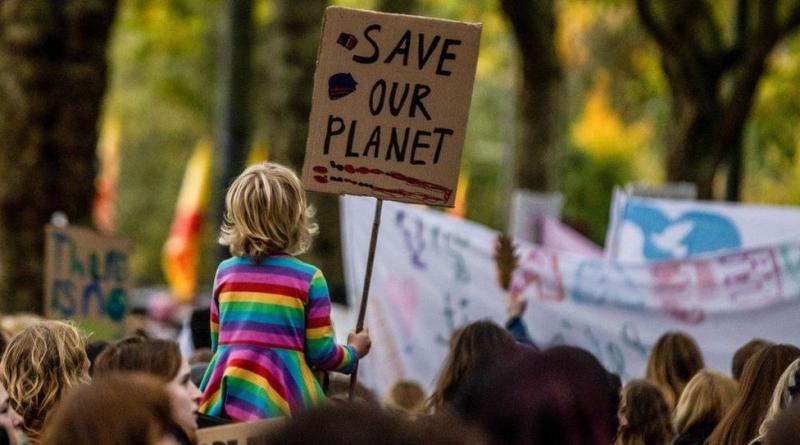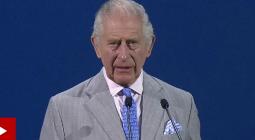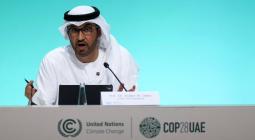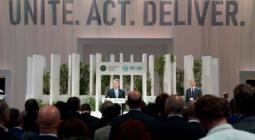COP28: Why Scotland needs to 'up our game' on climate

Scotland's First Minister Humza Yousaf is taking his first tentative steps in international climate negotiations with big boots to fill.
He's spending five days at the COP28 summit in Dubai; the same climate change conference which came to Glasgow in 2021.
For years, his predecessor Nicola Sturgeon cruised the corridors of these UN talks, casually posing for selfies with players like Greta Thunberg, David Attenborough and US president Joe Biden.
She was the master at appearing to be a key part of the talks while only truly being able to operate around its fringes.
There's no doubt her climate profile was further boosted by Scotland - and part of her Glasgow Southside constituency - playing host to the 26th iteration of the gathering.
Humza Yousaf inherits a government with a poor track record on meeting its own milestones for reducing greenhouse gas emissions.
While the Scottish Parliament legislated for some of the toughest targets in the world, eight out of the last 12 targets have now been missed.
Mr Yousaf acknowledges that his government has to "up our game".
But he added: "We narrowly missed it by just over a percent in terms of the last targets in 2021."
A strong emphasis in Dubai is on using the talks as a way to encourage investment in Scottish home-grown net zero technologies.
The Scottish government has brought with it representatives from 19 businesses and has a branded presence in the inner blue zone.
That delegation includes a company which uses satellite imagery to improve crop yield and another developing wave energy technology.
The first minister says it's about enhancing Scotland's global reputation, particularly on renewable energy.
He added: "When it comes to net zero and clean technologies, Scotland is abundantly blessed.
"There's a moral imperative to tackle the climate crisis. There's also an economic opportunity and why should Scotland miss out on that?"
The Scottish government has received international acclaim for its leadership on funding for countries experiencing loss and damage caused by climate change.
It was the first government to ring-fence this sort of money for projects in places like Malawi.
Countries have since promised to create a global "loss and damage" pot, with the first $420m (£330m) being pledged this week.
Malawi, which has strong links to Scotland, has experienced a string of unprecedented cyclones which displaced millions and seriously damaged infrastructure.
In New York, Mr Yousaf confirmed the projects which would receive the second round of funding, which was increased from £2m to £7m by his predecessor.
In Dubai he added: "Every country should be making a contribution in the global north and the reason for that, of course, is because we've benefitted historically from industrialisation.
"We are the ones who have helped to create, I'm afraid, the climate crisis."
The first minister intends to spend much of his remaining time at the Dubai conference urging other countries to follow Scotland's lead in providing further funding for loss and damage.







